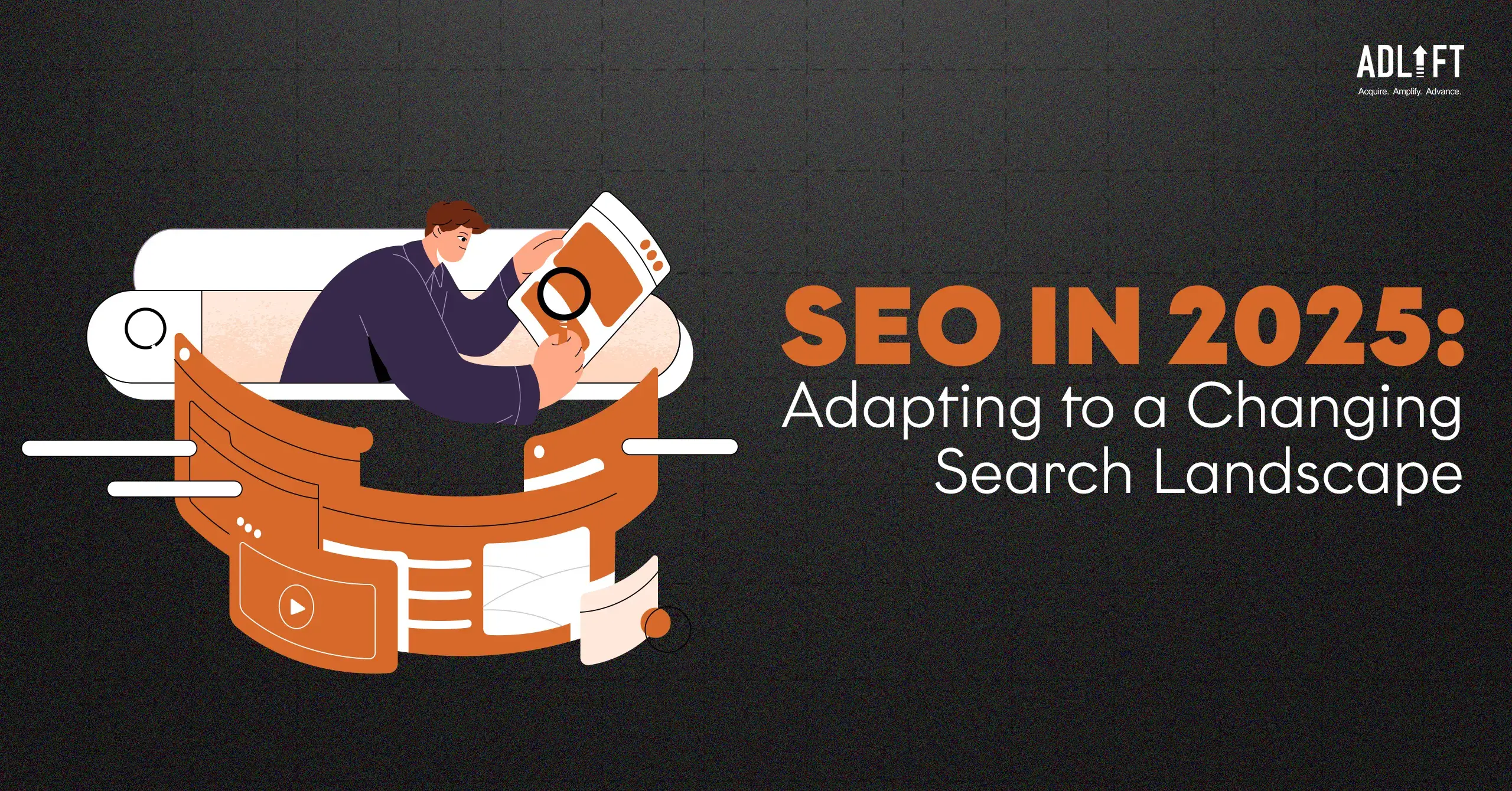SEO in 2025: Adapting to a Changing Search Landscape By Prashant Puri, CEO & Co-Founder, AdLift

SEO in 2025 is undergoing one of its most transformative phases. With the rise of AI, evolving user behaviours, and new search formats, brands need to rethink their strategies to stay competitive. It’s no longer just about ranking high—it’s about delivering real value in a rapidly shifting ecosystem.
Here’s a closer look at the trends and strategies shaping SEO in 2025.
AI-Driven Search Is Transforming the Game
AI has become the driving force behind search innovation, changing how users interact with information online. Google’s AI Overviews provides conversational responses that answer complex queries directly in the search results.
What’s Different in 2025?
AI isn’t just generating answers—it’s interpreting context, user intent, and even conversational nuances. For example, a user asking, “What’s the best way to lower my carbon footprint?” might receive a comprehensive AI-generated summary that integrates data, solutions, and product recommendations without clicking on external links.
How Brands Can Adapt
- Prioritize Context-Rich Content: Content that’s structured with schema markup and addresses multiple facets of a topic is more likely to be featured in AI-driven results.
- Think Beyond Keywords: Focus on answering user intents holistically, providing comprehensive and actionable solutions.
- Differentiate with Originality: AI-generated summaries thrive on aggregation. Brands must offer unique insights or data that set them apart from competitors.
The Challenge of Zero-Click Searches
The rise of zero-click searches is a natural consequence of AI-driven SERPs and Google’s focus on keeping users within its ecosystem. These searches now account for a growing share of queries, presenting both a challenge and an opportunity for marketers.
Why Zero-Click Matters
With snippets, People Also Ask (PAA) boxes, and AI summaries taking up prime SERP real estate, many users get their answers without clicking through to websites. While this reduces traditional traffic, it increases the importance of brand visibility and authority within the SERP itself.
Actionable Strategies
- Optimize for Featured Snippets: Craft concise, well-structured answers to common questions, formatted with bullet points, tables, or lists.
- Invest in Branding: A strong brand ensures that users actively seek you out, even if they don’t click on your site immediately.
- Create Interactive Content: Quizzes, tools, and downloadable resources can encourage users to engage further with your website.
User Experience Takes Center Stage
In 2025, Core Web Vitals remain a cornerstone of SEO success, with Google introducing Interaction to Next Paint (INP) to measure website responsiveness.
What Is INP?
INP evaluates how quickly your site responds to user interactions, such as clicking a button or filling out a form. Sites with poor responsiveness risk lower rankings, especially as Google continues to emphasize user-centric metrics.
How to Excel in UX
- Optimize Speed: Compress images, use lazy loading, and invest in a robust hosting solution.
- Test Responsiveness: Regularly check how your site performs across devices, ensuring seamless interactions.
- Enhance Mobile Experience: With mobile-first indexing now the norm, ensuring a flawless mobile experience is critical.
A responsive, user-friendly website not only ranks higher but also keeps users engaged longer, reducing bounce rates and boosting conversions.
E-E-A-T: The Foundation of Credibility
Google’s E-E-A-T (Experience, Expertise, Authoritativeness, Trustworthiness) framework continues to play a central role in content evaluation, especially in sensitive industries like health, finance, and legal services.
Why It’s Non-Negotiable
As misinformation becomes a growing concern, Google prioritizes content from credible and authoritative sources. For businesses, this means building trust is no longer optional—it’s essential.
Practical Tips to Boost E-E-A-T
- Showcase Expertise: Use bylines and author bios to highlight the credentials of your content creators.
- Leverage Social Proof: Incorporate reviews, testimonials, and third-party endorsements to build trust.
- Regularly Update Content: Stale content can hurt your rankings; ensure your articles reflect the latest trends and insights.
Content Strategy: Depth Over Volume
In the past, churning out endless content was the go-to strategy. But in 2025, it’s about delivering depth and value. Search engines now reward content that thoroughly addresses user queries, aligns with their intent, and provides actionable solutions.
How to Create Winning Content
- Focus on Evergreen Topics: Timeless content that answers recurring questions continues to drive traffic over time.
- Diversify Content Formats: Combine blogs with infographics, videos, and interactive elements to cater to different preferences.
- Align with User Intent: Understand whether your audience is looking to learn, compare, or buy, and tailor your content accordingly.
Alternative Search Platforms Are Growing
Google remains dominant, but alternative search engines like Bing and AI-powered tools such as ChatGPT Search are gaining momentum. These platforms offer opportunities to diversify traffic sources and reduce dependency on a single ecosystem.
How to Tap Into Emerging Platforms
- Optimize for conversational queries that align with AI-driven assistants.
- Monitor performance on platforms like Bing, which has benefited from integrating OpenAI’s GPT technology.
- Experiment with content formats that cater to platform-specific audiences, such as conversational guides for ChatGPT Search.
Key Metrics for 2025
Success in SEO is no longer just about clicks or impressions. Measuring the right metrics ensures you’re aligning your strategy with meaningful outcomes.
Metrics to Prioritize
- Engagement Metrics: Track time on site, scroll depth, and interaction rates to gauge content resonance.
- Core Web Vitals Performance: Ensure your site meets Google’s speed and responsiveness benchmarks.
- Lead Generation: Focus on how your organic traffic contributes to conversions, sales, or inquiries.
By tying SEO efforts to business results, brands can better justify their investments and refine their strategies.
Final Thoughts
SEO in 2025 isn’t just about adapting to new trends; it’s about staying ahead of them. Whether it’s optimizing for AI-driven search, embracing zero-click results, or enhancing user experience, the future belongs to those willing to innovate and evolve.
At AdLift, we’re committed to helping brands navigate this exciting era of change. With the right strategies, 2025 can be a year of growth, resilience, and success.
Are you ready to unlock the future of SEO?
